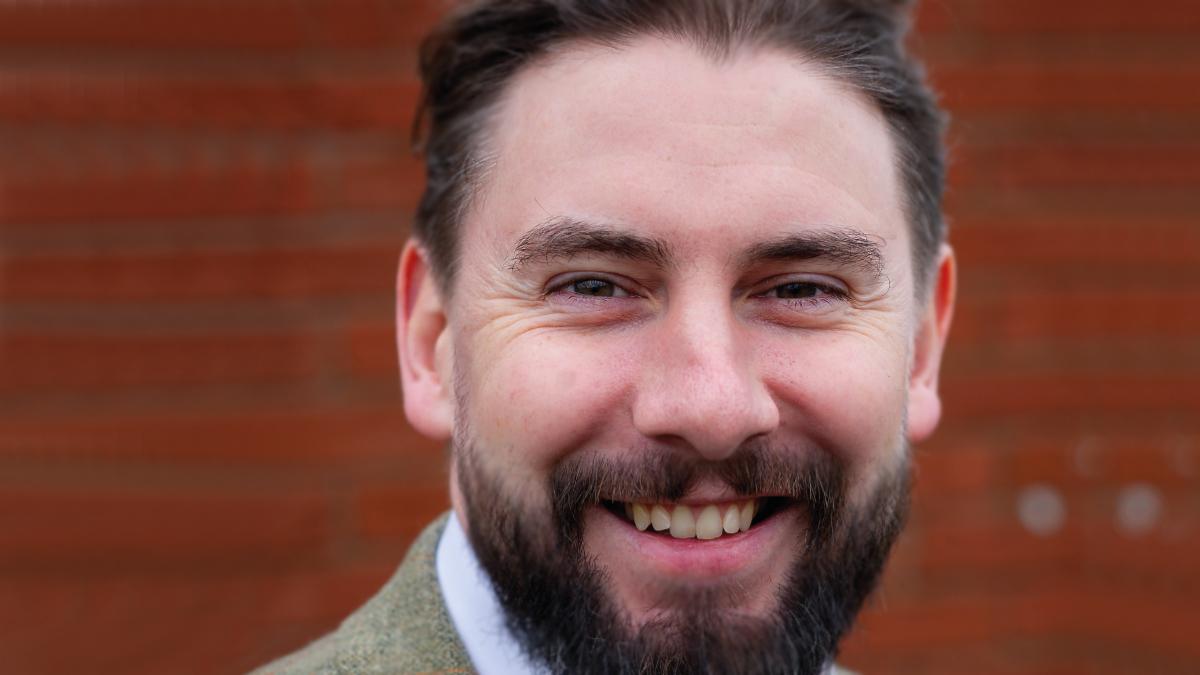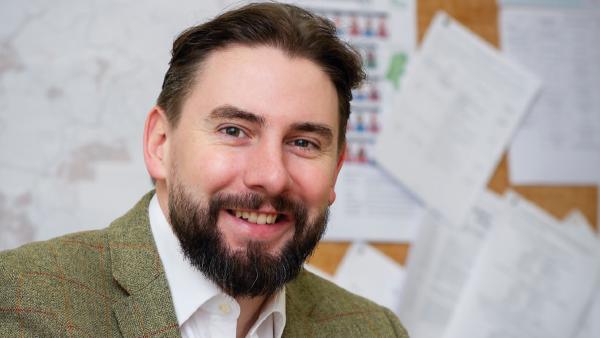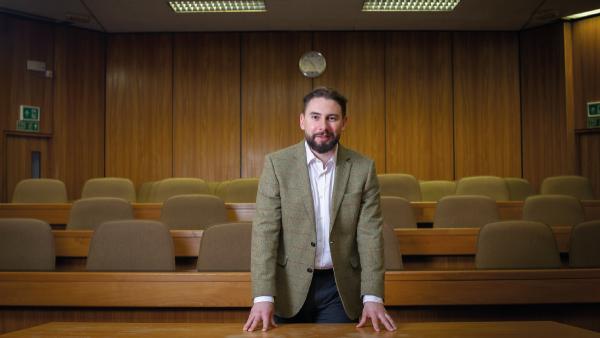Former Royal Marine David Williams speaks to Mark Gould about his five years on the CSP’s professional committee, a possible career in parliament, and why physiotherapy must use technology to focus on prevention rather than the cure
After over five years starting out as a student and rising to vice-chair David Williams is standing down from the CSP’s professional committee.
It’s not as if the former Royal Marine wants to take it easy; not only is he busy within the CSP and his own hospital, driving forward digital physio services and promoting leadership roles for physiotherapists, he is also a Labour politician who has his sights on a seat in parliament.
David says his experiences on the professional committee have provided valuable insights into communication and organisation that serve him well across his work as a physiotherapist and as a local councillor. ‘It’s a committee that deals with the real detail of what physiotherapists do in practice, every day,’ he says.
The professional committee provides expertise and insight for the CSP Council on practice, learning and development. Recently it has looked into issues such as animal physiotherapy and treating transgender patients with dignity and equity. Last summer, David was involved in the committee’s work which resulted in the CSP stepping in to order an immediate ban on physiotherapists preparing or administering platelet-rich plasma (PRP) injections.
Although efficacy has not been proven PRP has been used to treat tendon injuries, pulled hamstrings and osteoarthritis. A number of short courses offering PRP injection therapy training were being aimed at physiotherapists.
The Medicines and Healthcare products Regulatory Agency decided that PRP should be classed as an unlicensed medicine in the UK meaning there was no legal or regulatory framework that would allow physios to use PRP in practice. As a result, physiotherapists cannot provide PRP to patients, hence the CSP Council ordered a ban on their use.
War of attrition
Looking back on the five years, David said it was fascinating to get involved so early on.
‘I was elected as a CSP student representative at Nottingham University and got onto the professional committee via the student reference group. It’s been really interesting for a student to be involved.
‘We did some great work and brought about some changes to the practices of physios. As vice-chair I did a lot of preparatory work, chaired some meetings, and set up some of the meetings, so it was a good learning experience and a privilege to help steer the agenda of the CSP.’
David’s dreams of a military career with the Royal Marines were shattered early on. ‘I had a serious shoulder injury two years into my career on a training exercise. I went into rehabilitation where it became apparent that I was not going to be fit enough to carry on.’
Looking back, he sounds phlegmatic about the experience: ‘It’s not a unique thing that marines are medically retired. There is a really high attrition rate in training, which I guess comes with what marines are asked to do. It’s the nature of the beast. The system is very good at creating fit, elite soldiers but they are thinned out because they haven’t got the right psychological or physiological capacity, and I was one of the latter.
‘That experience of the rehabilitation with physios gave me the inspiration for a career.’
He says military training provides many transferable skills. ‘There’s a huge crossover – teamwork, being able to follow or deliver orders, good communication and problem-solving skills, the resilience and grit to get through (physio) training and they set standards really high.’
David worked as a rotational physiotherapist at University Hospitals of Derby and Burton where he was a MSK specialist and embraced leadership development roles. As the chief nurse junior fellowship, he focused on quality improvement work for AHPs early in their careers.
He also joined the trust’s digital services department as its first digital specialist physio, where he develops digital services within clinical teams and looks at improving the way allied health professionals use digital technology. After being identified as a future digital leader, he was awarded the Federation for Health Informatics Professionals under-35 bursary, which helps support digital leaders.
Last year he was seconded to NHS England as a regional clinical leadership fellow working across the Midlands. ‘This has really changed my perspective on healthcare and my career. We are doing system-wide programmes and projects including a workstream on deconditioning which has engaged with 26 different providers looking at different activities to improve deconditioning, reducing harm and hospitalisation rates.’
Given his military experiences Health Education England asked David to look at ways of getting veterans into medical careers. ‘I started an armed forces network and do one day a week as the armed forces lead at my trust, working with a small team to improve links with the defence community and the Defence Medical Services, based in nearby Lichfield.’
Political ambitions
When not juggling multiple work roles David also has political ambitions – encouraged by his desire to see better care for injured veterans. Last May he was elected as a Labour councillor on Cannock Chase district council in Staffordshire where he is chair of the health and wellbeing committee.
‘I joined the Labour Party in 2015 as I wasn’t happy with the way military veterans were looked after – I’m still not. Labour talks about “common endeavour” – achieving more together than we achieve alone – that is what we do in the NHS – and I thought I could make a difference in my community. It’s a former mining town which has never really recovered from the closure of the mines and it has been made worse by the effects of austerity.’
In December he narrowly missed selection as Labour candidate for the Cannock parliamentary constituency. Although he did not make the cut he says, ‘the experience has not dampened his desire to use politics as a force for change,’ and he says he will be applying for other seats. He is also passionate about physios being at the centre of a radical revolution in healthcare – especially health prevention.
In the next 20 years healthcare will be really different in where and how it is delivered.
Physios are well-placed to play a more prominent role in terms of integrated care boards and the whole population health agenda. The NHS is a system predicated on treating people who are ill. It needs to become a system that keeps people well - until we do that we will be in perpetual crisis. Physios are great at understanding the bigger picture – we have to do that rather than focus on the narrow things we did in the past,’ he says.
Number of subscribers: 3



